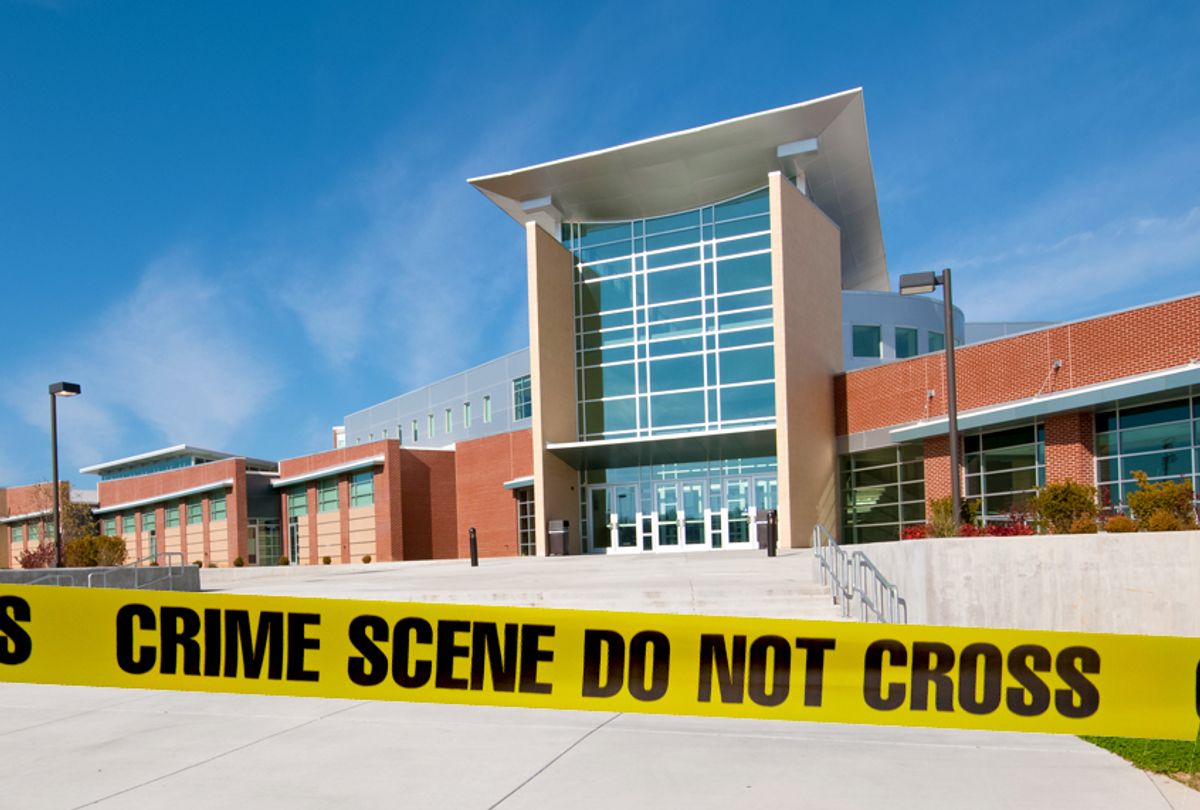As I listened to the constant news barrage of President Trump's idea of armed teachers, I couldn't help but think that teachers are being asked to do one more thing while simultaneously giving young people one more reason to reject teaching as a career. As the Dean of a School of Education, I am constantly reminded of the looming teacher shortage and the reasons (e.g., low teacher salaries, low public support) why bright undergraduate students decide against an education career. This week's news has added one more reason to reject education as a career.
Teachers in the U.S. are currently paid, on average, $56,383 a year, and teachers in Florida, where the recent school shooting occurred, are paid below the national average at $45,723. Over the years, teachers' unions and education advocates have argued for increased teacher salaries as a way to recruit and retain excellent teachers. Nevertheless, increased teacher salaries across the country have been spotty at best. While we debate gun laws, we should simultaneously debate the compensation of teachers, particularly if gun laws don’t change and teachers continue to be placed in positions of risk.
Every day, teachers across the country go to work to change lives. They teach students in a myriad of subjects and pride themselves on the accomplishments of their students. Teachers teach because they love what they do and are stimulated by the impact of their work. The teachers of Marjory Stoneman Douglas High School in Parkland, Florida went to work on February 14 to teach and were then asked to do the unthinkable — to protect their students from gunfire.
Arming teachers is not the answer. Most of our teacher candidates want to be teachers because they love learning and want to share their love of learning with others. I can't imagine shifting our discussion of teaching to include the possibility of being killed or adding gun licenses as part of our credentialing packets. The teacher candidate pool will ultimately change — and not for the better.
Surely, to decrease gun violence in schools, we must first decrease access to guns. Next, schools must have the resources to help troubled youth and their families. Recently, the President released his national education budget proposal. Interestingly, it includes the elimination of essential services for students and schools. The Student Support and Academic Enrichment Grants or Title IV of the Every Student Succeeds Act, Promise Neighborhoods Program and the Gaining Early Awareness and Readiness for Undergraduate Programs (GEAR UP) are among the programs to be cut. All of these programs include components focused on preparing students for their futures and overall student well-being (including mental health). There’s not one new program that increases funding for counseling or educator training related to mental health.
Let's fight for a new national budget that is inclusive of increased salaries for teachers and more resources for students and schools in need. And, rather than decreasing the number of effective teachers by asking them to utilize guns in classrooms, let's provide schools the necessary resources to be safe, healthy environments where students and teachers can thrive.

Shares